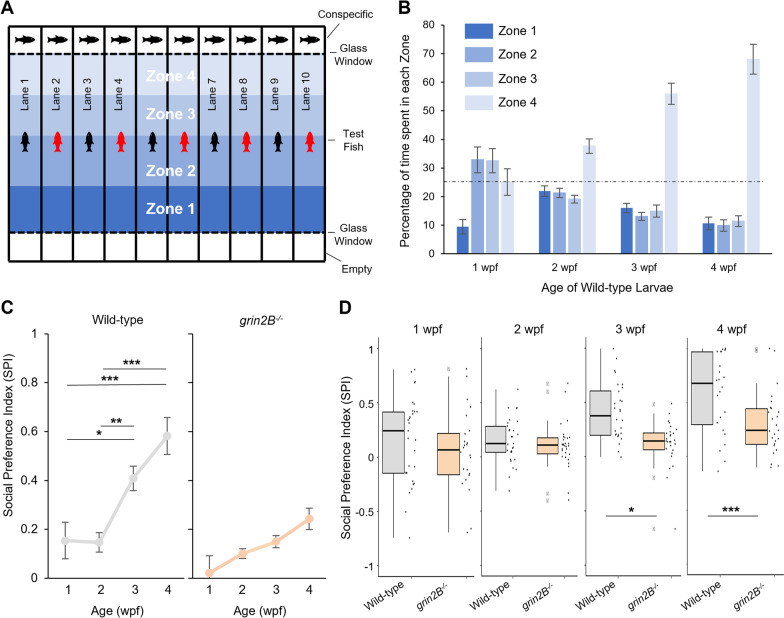Fig. 3
Fish lacking grin2B show a juvenile social deficit. A Schematic depiction of social behavior chamber. Each lane contains a test fish, either a wild-type control (depicted as a black fish) or a grin2B?/? (depicted as a red fish). Individual fish can swim freely the length of the test lane. At the end of each lane is a clear glass window that is either empty (bottom row) or contains a wild-type age-matched conspecific (upper row) behind it. Each lane is subdivided into four equally sized zones, with Zone 4 the closest to the conspecific. B Bar graph (mean ± SEM) illustrating the time spent in each of the 4 zone subdivisions for either wild type at 1 (n = 29), 2 (n = 29), 3 (n = 28), or 4 (n = 24) wpf (weeks post fertilization). After allowing fish to briefly acclimate in the lane, fish were measured for 20 min. Dashed line is at 25%, the value of no preference for any zone. C Social Preference Index (SPI) (see ?Materials and methods? section), a metric for social affinity. Values closer to 1 indicate a stronger social preference while 0 indicates no social preference. SPI was calculated at successive weeks for the experiment outlined in (A, B). Fish were assayed weekly from 1 to 4 wpf with experimental details in Additional file 1: Table S1. D Boxplots showing pairwise comparison of SPI for the same wild-type and grin2B?/? fish at 1?4 wpf outlined in panel C. Individual dots represent SPI for individual fish with experimental details in Additional file 1: Table S1

